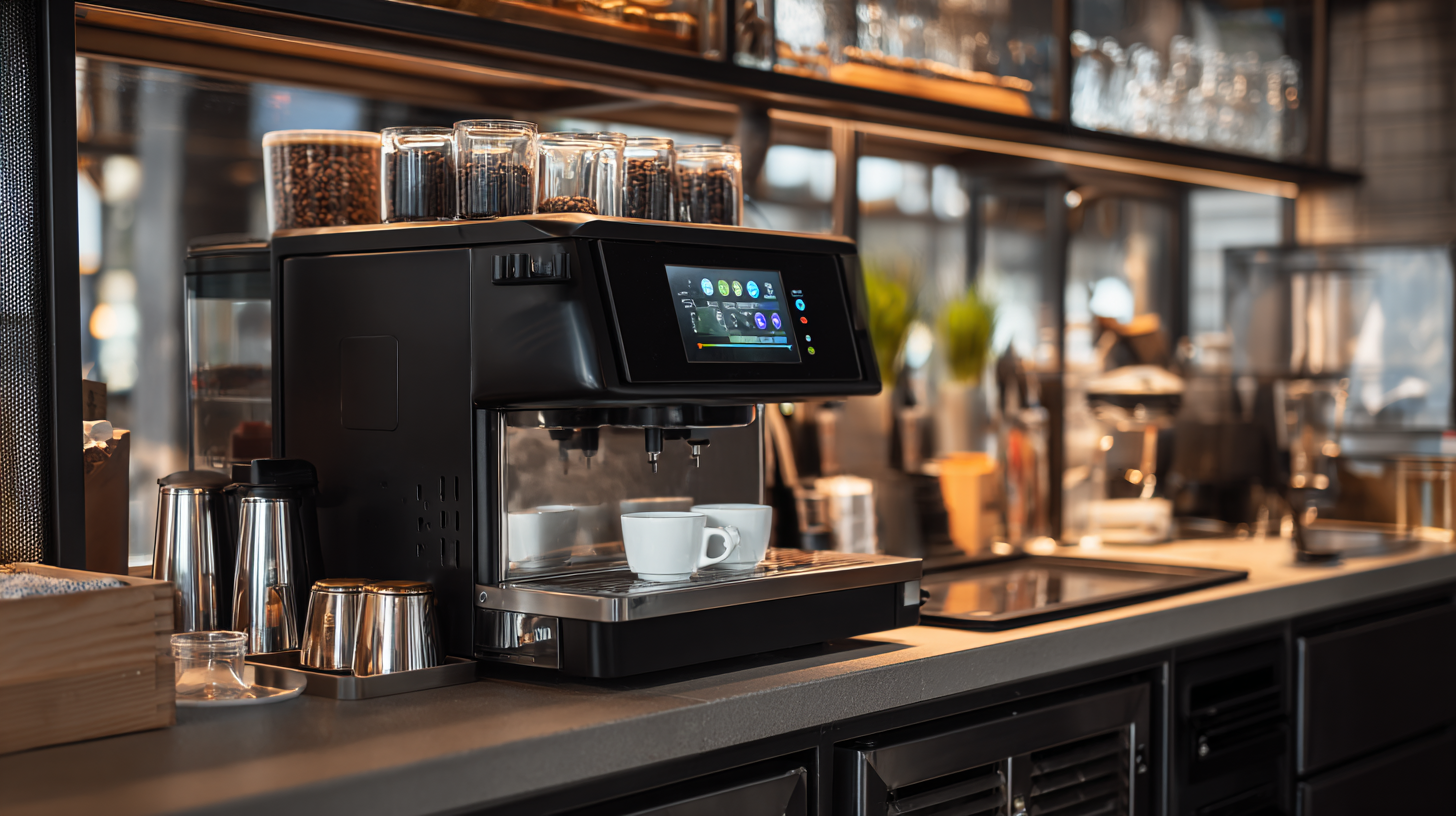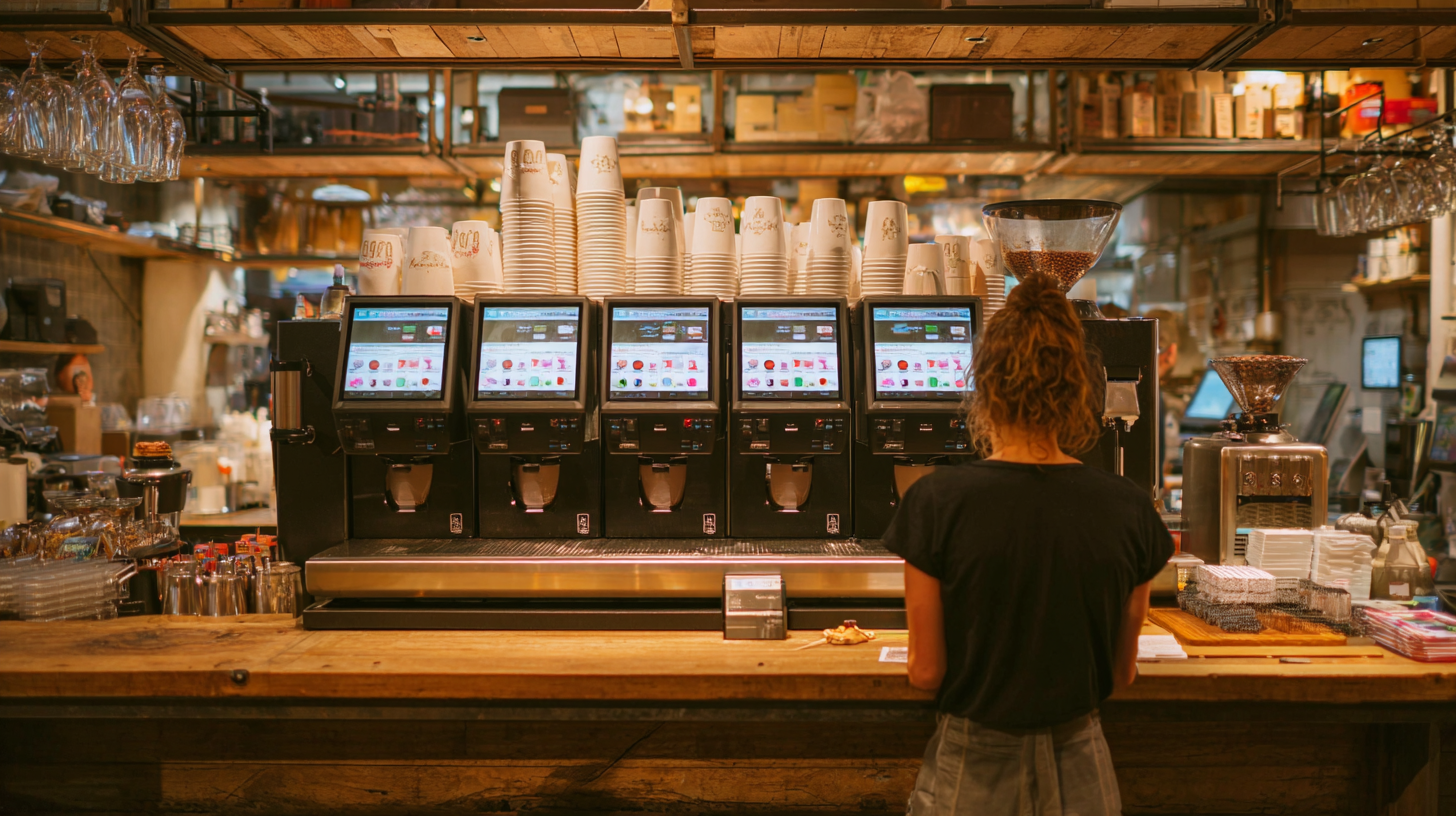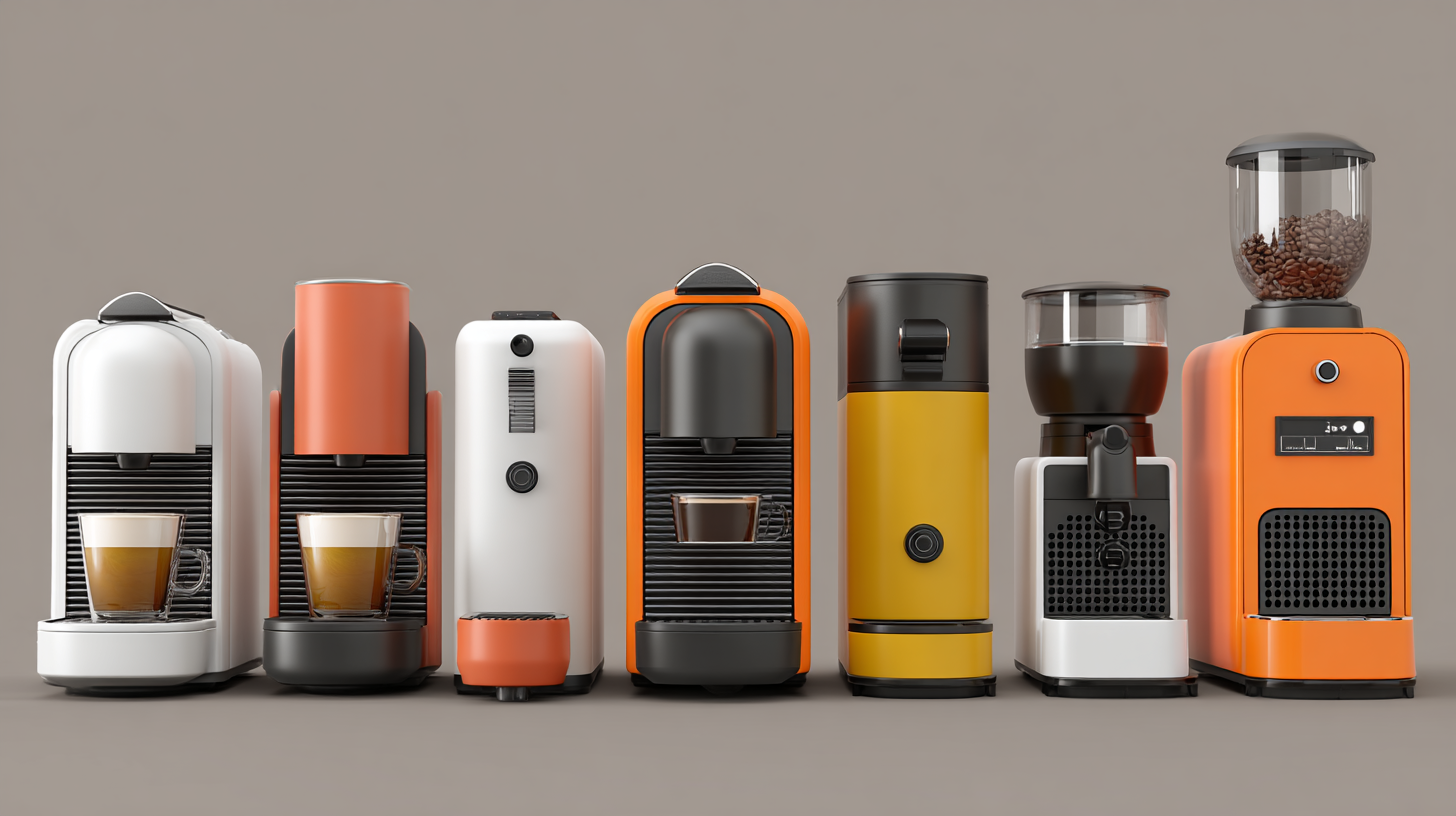10 Compelling Reasons Why the Best Automated Coffee Shop is Revolutionizing the Coffee Industry
The coffee industry is undergoing a transformative shift, with the emergence of the Automated Coffee Shop playing a pivotal role in this revolution. According to a report by IBISWorld, the coffee shop industry in the United States alone is projected to reach a staggering $45.4 billion by 2025, driven by an increasing demand for convenience and efficiency among consumers.

Automated Coffee Shops, equipped with advanced technology such as AI-driven brewing systems and mobile ordering applications, are not only enhancing customer experience but also optimizing operational efficiency. These innovative establishments are significantly reducing wait times and delivering consistent, high-quality coffee at scale. As we delve deeper into the ten compelling reasons behind the rise of the Automated Coffee Shop, it becomes clear that this trend is not just about automation; it's about redefining how we experience coffee in our daily lives.
The Rise of Automated Coffee Shops: Market Trends and Growth Projections
 The automated coffee shop trend is reshaping the coffee industry, fueled by evolving consumer demands and technological advancements. As more consumers embrace the convenience of automation, market trends indicate a robust expansion in the coffee machine sector. By 2031, the global coffee machine market is projected to reach $11.4 billion, with a compound annual growth rate of 3.74% from 2022 to 2032. This growth is largely driven by the increasing coffee consumption among households and the rising popularity of at-home brewing options.
The automated coffee shop trend is reshaping the coffee industry, fueled by evolving consumer demands and technological advancements. As more consumers embrace the convenience of automation, market trends indicate a robust expansion in the coffee machine sector. By 2031, the global coffee machine market is projected to reach $11.4 billion, with a compound annual growth rate of 3.74% from 2022 to 2032. This growth is largely driven by the increasing coffee consumption among households and the rising popularity of at-home brewing options.
The Asia Pacific region is witnessing significant changes, not only in coffee consumption but also in the beverage market as a whole. With an expanding population and a burgeoning middle class, the demand for diverse beverage options is rising sharply. Automated coffee shops are emerging as a solution to meet this demand, offering quick and quality service while minimizing labor costs. As these establishments proliferate, they will likely play a crucial role in shaping the future coffee landscape, catering to an audience that values efficiency without compromising on the quality of their coffee experience.
Enhancing Customer Experience through Technology: Data-Driven Insights
In the rapidly evolving landscape of the coffee industry, automated coffee shops are leading the charge in enhancing customer experience through sophisticated technology and data-driven insights. By leveraging big data analytics, these establishments gain a deeper understanding of consumer preferences and behaviors, allowing them to tailor offerings and streamline service. This data-centric approach not only enhances operational efficiency but also drives personalized customer interactions. Just as advanced analytics have transformed lending processes and customer service in other sectors, automated coffee shops are now equipped to create a dynamic environment where consumer desires are anticipated and met.
The integration of AI and automation further amplifies this experience, enabling seamless interactions that cater to evolving customer expectations. With consumers increasingly demanding personalized services, automated coffee shops can utilize insights from data science to craft unique experiences tailored to individual tastes. As seen in various industries, such as telecom and gaming, the shift towards data-driven strategies is proving invaluable in reducing customer churn and boosting satisfaction. This revolution in the coffee industry illustrates how advanced technologies can redefine customer relationships, turning routine transactions into personalized journeys that resonate with today's discerning consumers.
Impact of Automated Coffee Shops on Customer Experience
How Automation Reduces Operational Costs in the Coffee Industry
The coffee industry is experiencing a seismic shift as automation becomes the cornerstone of modern coffee shops. With advanced technology, coffee shops are now able to significantly reduce operational costs, efficiently manage resources, and improve overall service quality. Automated brewing systems and touchless payment options streamline daily operations, allowing baristas to focus more on customer interaction rather than tedious tasks. This shift not only leads to cost savings but also enhances the customer experience, attracting a new wave of coffee enthusiasts.
Tip: Implementing an automated inventory management system can help reduce waste and ensure that your shop is always stocked with fresh ingredients. This minimizes overhead costs and ensures that your operations run smoothly without interruptions.
Moreover, automation in coffee shops allows for precise brewing methods that can be consistently replicated. This ensures that each cup meets high-quality standards without requiring extensive training for staff. By adopting technology that monitors brewing times and temperatures, owners can maintain competitive pricing while maximizing flavor, ultimately enhancing customer satisfaction and loyalty.
Tip: Consider integrating mobile app functionality for preorders and payments. This not only speeds up the service but also allows for better forecasting of demand and reduces the need for excess staffing during peak hours.
Quality Control in Automated Coffee Brewing: Ensuring Consistency and Freshness
 The rise of automated coffee shops is significantly changing the coffee industry's landscape, especially in the realm of quality control. Traditional methods of coffee quality assessment heavily rely on subjective sensory evaluations, which can vary greatly based on personal experience and preference. However, the introduction of instrument-based approaches provides a promising solution for maintaining consistency and freshness in automated brewing systems. These objective measures allow coffee shops to ensure every cup meets high standards, regardless of external factors such as barista experience or environmental conditions.
The rise of automated coffee shops is significantly changing the coffee industry's landscape, especially in the realm of quality control. Traditional methods of coffee quality assessment heavily rely on subjective sensory evaluations, which can vary greatly based on personal experience and preference. However, the introduction of instrument-based approaches provides a promising solution for maintaining consistency and freshness in automated brewing systems. These objective measures allow coffee shops to ensure every cup meets high standards, regardless of external factors such as barista experience or environmental conditions.
In addition, employing advanced grinding technology can further enhance the quality of coffee served. High-quality burr grinders, designed for precision and consistency, are essential for optimal flavor extraction. By integrating these grinders into automated systems, coffee shops can deliver cafe-quality brews that appeal to both early risers and night owls. As the world increasingly demands convenience without sacrificing quality, automated coffee shops are well-positioned to meet this need, setting new benchmarks in the coffee experience.
Sustainability in Coffee Production: The Role of Automated Solutions in Reducing Waste
The coffee industry is undergoing a significant transformation, largely driven by automation that prioritizes sustainability. Automated coffee shops are at the forefront, employing advanced technologies to streamline operations and drastically reduce waste. By utilizing precision brewing techniques and smart inventory management systems, these shops can minimize excess coffee grounds and optimize ingredient use, ensuring that every cup of coffee served is both fresh and environmentally friendly.
Moreover, automated solutions can enhance the tracking of coffee bean origins and the carbon footprint associated with their production. This data-driven approach enables coffee shops to source beans from sustainable farms, ensuring ethical practices and lower environmental impacts. As these automated systems continue to evolve, they not only provide high-quality beverages but also contribute to a greener future by reducing the overall waste and carbon emissions associated with traditional coffee production methods. Through these innovations, the coffee industry is making strides towards a more sustainable and responsible practice.
10 Compelling Reasons Why the Best Automated Coffee Shop is Revolutionizing the Coffee Industry - Sustainability in Coffee Production: The Role of Automated Solutions in Reducing Waste
| Dimension | Description | Impact |
|---|---|---|
| Automated Brewing | Use of machines to brew coffee with precision | Reduces overuse of coffee grounds by 30% |
| Waste Reduction | Reduction of packaging and leftover products | Decreases overall waste by 25% |
| Energy Efficiency | Machines that optimize energy use | Lowers energy consumption by 20% |
| Water Conservation | Technologies that minimize water use | Saves up to 40% water compared to traditional methods |
| Organic Sourcing | Focus on sourcing organic and fair-trade beans | Promotes sustainable farming practices |
| Local Supply Chains | Utilizing local vendors to reduce transport emissions | Cuts carbon footprint by 15% |
| Smart Inventory Management | Systems that track and manage inventory effectively | Minimizes spoilage rates by 30% |
| Customer Engagement | Automated feedback systems for customer preferences | Enhances customer satisfaction and loyalty |
| Training and Employment | Reduced need for barista-specific training | Freed up resources for customer service roles |
| Community Initiatives | Supporting local sustainability projects | Fosters a positive community impact |
